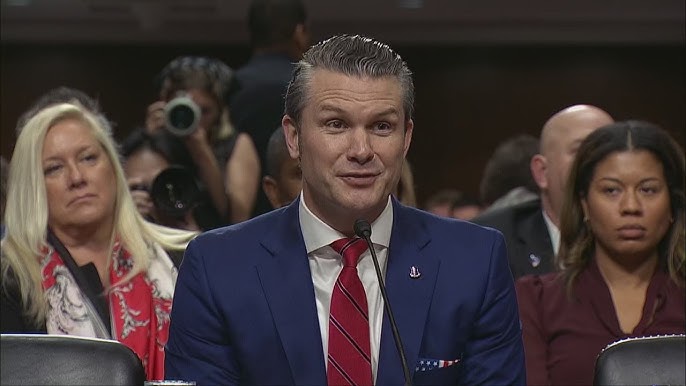By The Malketeer
In an era where TikTok teens can name K-pop stars from every Asian nation, America’s would-be Defence Secretary can’t identify a single ASEAN country
In a stunning display that would make any PR professional cringe, Pete Hegseth’s Senate confirmation hearing has become a masterclass in how a lack of preparation can devastate personal and national brands alike.
The incident offers valuable lessons for marketing professionals about the importance of regional expertise and brand reputation management in an interconnected world.
When Influencer Status Isn’t Enough
Pete Hegseth’s trajectory from Fox News commentator to Defence Secretary nominee perfectly illustrates a contemporary challenge: the assumption that media presence automatically translates to domain expertise.
Despite his military service background, Hegseth’s inability to name a single ASEAN nation has become a cautionary tale about the dangers of prioritising media visibility over substantive knowledge.
The ASEAN Blind Spot: A US$3.2 Trillion Market Mistake
Perhaps the most striking aspect of this diplomatic faux pas is its timing.
As Malaysia assumes the ASEAN chairmanship with a focus on “Inclusivity and Sustainability,” Hegseth’s knowledge gap becomes particularly glaring.
For marketing professionals, this serves as a reminder that overlooking regional powerhouses – especially a collective market of over 600 million consumers – can have serious consequences.
ASEAN: A Region Too Big to Ignore—Unless You’re Pete Hegseth
Hegseth’s gaffe came under fire when US Senator Tammy Duckworth, herself of Thai descent, grilled him on ASEAN’s strategic importance.
When asked to name any of its 10 member states or identify the bloc’s key agreements with the US, Hegseth offered South Korea, Japan, and Australia—none of which are ASEAN members.
Duckworth’s sharp rebuttal, “None of those countries you’ve mentioned are in ASEAN,” could have served as a masterclass in brand reputation damage control.
For marketers, this slip-up is a reminder that ignorance of your target audience—whether they’re consumers or countries—can cost you credibility and trust.
With ASEAN projected to become the world’s fourth-largest economy by 2030, every serious brand strategist knows this is a region you can’t afford to misunderstand.
Digital Age Amplification: When Local Becomes Global
The incident’s broadcast across major US networks and subsequent viral spread demonstrates how quickly regional missteps can become global embarrassments.
In an era where content travels at the speed of a tweet, the cost of inadequate preparation has never been higher.
The Reputation Management Takeaways
- Deep Knowledge Trumps Surface Expertise: The incident highlights how surface-level understanding can crumble under focused questioning. For brands operating in Southeast Asia, this underscores the importance of genuine regional expertise.
- Preparation is Non-Negotiable: Whether it’s a Senate hearing or a market entry strategy, thorough preparation isn’t just about avoiding embarrassment – it’s about demonstrating respect for your audience and stakeholders.
- The Viral Risk Factor: In today’s interconnected media landscape, every public statement or knowledge gap can become tomorrow’s viral headline. Organisations must factor this into their leadership preparation and public relations strategies.
Looking Forward: The Cost of Knowledge Gaps
For marketing professionals, especially those operating in or targeting Southeast Asian markets, this incident serves as a powerful reminder: in an era where authenticity and cultural competence are paramount, there’s no substitute for genuine understanding and thorough preparation.
The reputation damage from such public displays of ignorance can have lasting implications, affecting everything from market perception to partnership opportunities.
As Malaysia leads ASEAN through 2025, organisations would do well to ensure their leadership teams are well-versed in regional dynamics, rather than learning these lessons the hard way.
In the end, Hegseth’s hearing demonstrates that in today’s global marketplace, regional knowledge isn’t just a nice-to-have – it’s a fundamental requirement for credible leadership.
For marketing professionals, the message is clear: invest in deep market understanding, do your homework, or risk becoming the next cautionary tale in global business education.
MARKETING Magazine is not responsible for the content of external sites.
source
